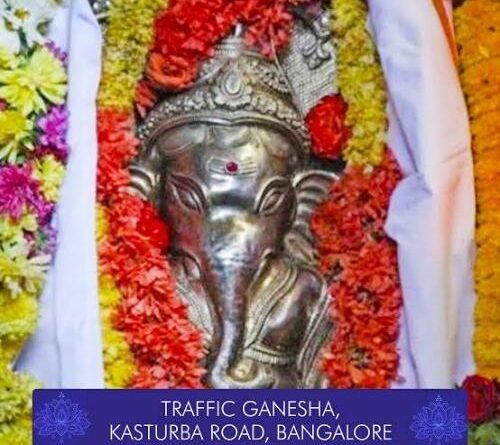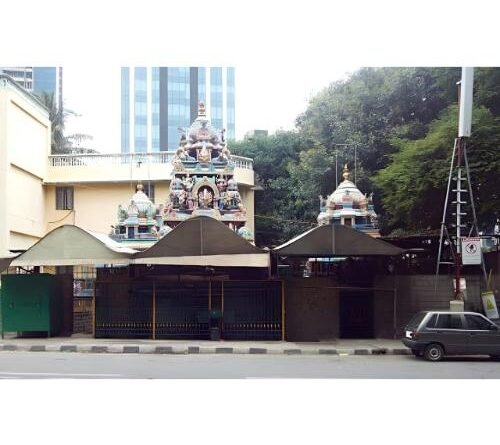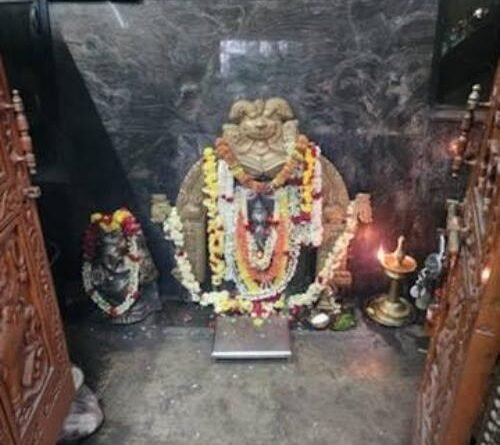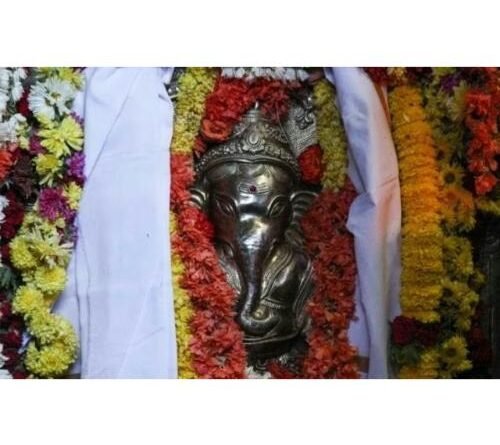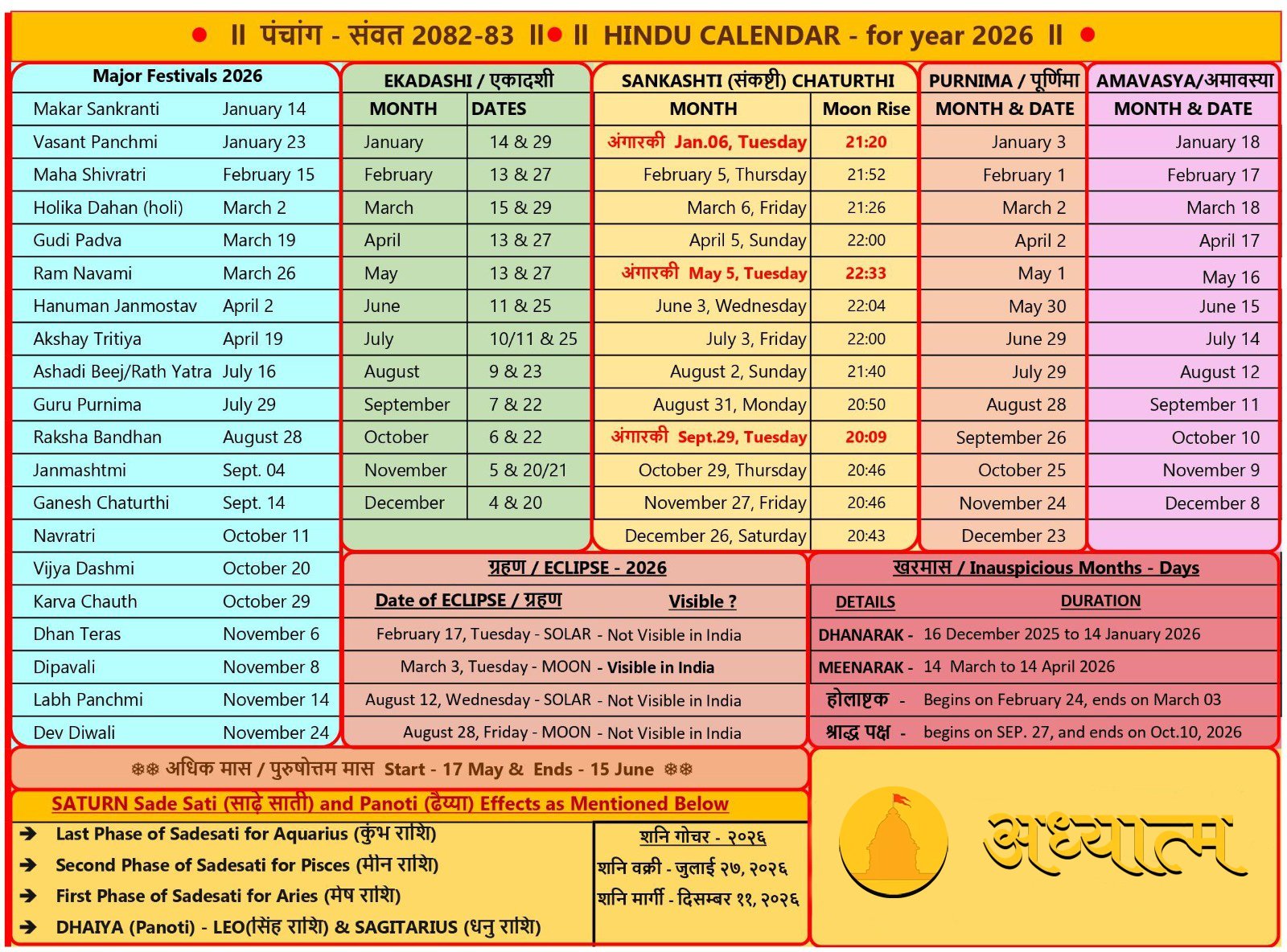Traffic (Vahana) Ganesha Temple Bengaluru,Karnataka
Traffic Ganesha Temple, also called the Vahana Ganapathi Temple or Patala Ganesha Temple, is located on Kasturba Road in the heart of Bengaluru, Karnataka.The temple is believed to be more than 600 years old, making it one of the oldest Ganesha temples in Bengaluru. Local tradition says it dates back to the period of Kempegowda I, the founder of the city. Over the centuries, the temple has remained a popular spiritual spot, even as the modern city grew around it.
Deity Details
The main deity is Lord Ganesha, worshipped here as Vahana Ganapathi—the protector of vehicles and travellers. The idol depicts Ganesha in a seated posture with a calm yet powerful expression. Devotees believe that worshipping here removes obstacles and grants safety in journeys. The deity is particularly associated with blessing new vehicles for safe use.
Architecture
The temple is small but built in the traditional South Indian style, with a colourful gopuram (tower) over the entrance. Earlier, the sanctum was located below the road level, and devotees had to climb down steps to see the idol—hence the name Patala Ganesha. Due to changes in road levels over time, the temple entrance has been adjusted, but it still retains its original charm.
History
According to historical accounts, the temple was established during the time of Kempegowda I in the 16th century. It has always been a place where traders, travellers, and later motorists would stop to seek blessings. Over the decades, the temple earned the nickname Traffic Ganesha because of the large number of vehicles—cars, bikes, and even trucks—parked around it for pooja, especially during weekends and festivals. Even the Maharaja of Mysore is said to have brought his Rolls Royce here for blessings.
Sthalapurana
Many centuries ago, the place where the Traffic Ganesha Temple now stands was not part of a busy city. It was an open area with dusty paths used by traders, farmers, and travellers passing between villages. In those days, people mostly travelled by bullock carts, horses, or on foot.
At a small clearing along the path, there was a tiny shrine to Lord Ganesha. This idol was placed below the ground level in a pit-like sanctum, so devotees had to walk down a few steps to see Him. Because of this underground position, people began calling him Patala Ganesha (“Ganesha of the Netherworld/Below the Earth”).
Travellers believed that this Ganesha had special powers to protect them from dangers during journeys—whether it was wild animals, accidents, theft, or obstacles along the way. It became a tradition for anyone starting a long journey to first stop at this shrine, offer prayers, and then proceed. The Lord was also believed to ensure that goods transported in carts would reach safely without damage.
As years passed, Bengaluru grew into a town under Kempegowda I, the city’s founder. The shrine continued to be worshipped by traders, soldiers, and common people alike. With the arrival of motor vehicles in the 20th century, the tradition of seeking the Lord’s blessings before travel adapted to modern times— now devotees began bringing cars, bikes, buses, and even trucks to be blessed.
Over time, because so many vehicles gathered here for pooja every day, people started calling him “Traffic Ganesha”. The belief remains strong that a vehicle blessed here will be protected from mishaps, and the driver will always have safe travels.
Festivals
The most important festival is Ganesh Chaturthi, celebrated with grand decorations, special poojas, and cultural programs. Sankashti Chaturthi, observed every lunar month, draws large crowds for special abhishekams and offerings. Vehicle pooja is performed daily, but during festive times, the temple sees a surge of devotees bringing their new vehicles straight from showrooms for the Lord’s blessings.










